
The AIgorythm project

Playwright and actor
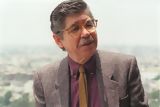
Novelist

Writer and poet

Volleyball player

Italian-Peruvian naturalist and geographer

Singer and percussionist

Last Inca emperor

Politician, former prime Minister

Journalist and TV host
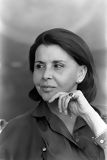
Poet

Inca warrior

Actor and comedian

Biophysicist

Poet

Doctor and researcher

Businessman, Interbank group

Journalist and writer
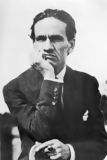
Poet and writer
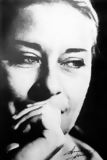
Singer and songwriter
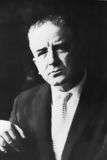
Writer

Film director, Berlin Golden Bear winner

Football player
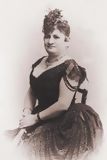
Writer and journalist
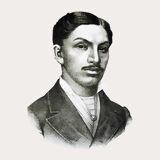
Doctor and scientist

Photograph

Chess player

Industrialist

Former general

Specialist in public health

Actress and singer
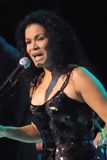
Afro-Peruvian music singer

Mathematician and engineer

Indigenous chronicler

Neurologist and anthropologist

Painter

Football player
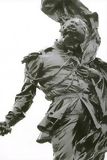
National hero, military leader

Intellectual and reformer

Chef and entrepreneur

Fashion designer

Singer-songwriter

TV presenter

Marathon runner

Indigenous Peruvian chronicler

Theologian

Former national team captain

Economist and former health minister

Inca princess

Writer and television host

Folk musician

Poet and guerrilla
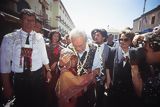
Former UN secretary-general

Chef, known for fusion cuisine

Football player

Peruvian aviation pioneer

Poet and artist
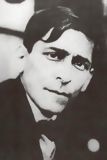
Marxist philosopher and writer

Industrialist and businessman
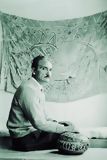
Novelist and ethnologist

Painter and muralist

Opera tenor

Fashion designer

Cardinal of Lima

Peruvian tennis player

Football coach

Leader of the indigenous rebellion
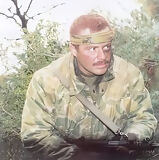
Military hero

Latin singer
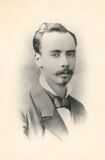
War of the Pacific hero

The youngest mother in history

Politician
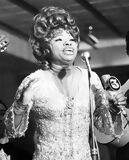
Creole music singer

Tennis player
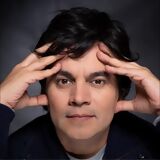
Musician

Writer and politician

Politician and founder of the Christian Democratic Party

Founder of Sodalitium Christianae Vitae

Archaeologist and anthropologist
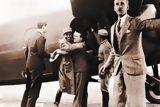
Military leader and politician

Television host
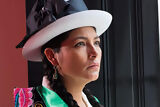
Actress and singer

Contemporary sculptor

Women’s rights activist

Beauty queen

Astrophysicist

Heroine of independence

Mathematician and archaeologist

Historian and anthropologist
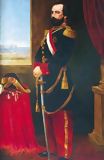
Military figure and historical figure

Fashion photographer
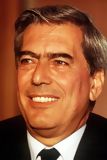
Writer, Nobel Prize in Literature, Politician

Revolutionary leader
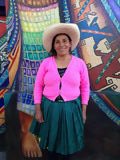
Environmental activist

Leader of the indigenous rebellion

Musician from Gaia band
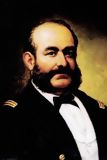
War hero
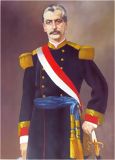
Military leader and politician

Chef, known for Nikkei cuisine

Volleyball coach and former player

Environmental activist

Television personality

Writer

Football player

Epidemiologist and former health Minister

Inventor and aerospace pioneer

Soldier and inventor

Rock singer

Chef and co-owner of Central restaurant

Painter

Football player

TV presenter and actress
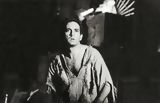
Actor
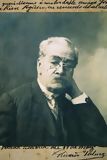
Writer and historian

Journalist and lawyer

Archaeologist, founder of Caral site
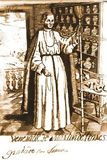
Monk and Saint
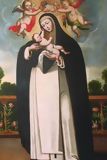
Saint, patron of Latin America

Physicist and engineer

World champion surfer

Actress

Oncologist

Singer, Latin Grammy winner

Former mayor of Lima

Singer

Actress

Former football player

Painter
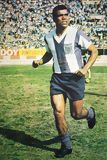
Former football player

Painter

Inca leader

Archbishop, saint
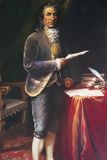
Leader of the indigenous rebellion

Revolutionary indigenous leader

Diplomat and intellectual

Sculptor and painter
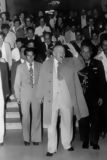
Political leader, founder of APRA

Lawyer and Former prime minister

Chef of Central restaurant
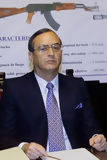
Former head of secret services

Popular singer

Fashion designer

Exotic music singer
Carlos Germán Belli, born on September 15, 1927, in Lima, is widely regarded as one of the most distinctive and influential poets in 20th-century Peruvian literature. His poetry, which masterfully blends classicism with modern themes, explores profound existential questions through a rich and nuanced language. With his unique ability to merge traditional poetic forms with contemporary concerns, Belli has carved out a lasting place in both Latin American and global literary history.
Belli grew up in Lima in a family of Italian descent. His love for literature emerged at an early age, leading him to immerse himself in the world of poetry. He pursued his academic studies at the National University of San Marcos, one of the oldest and most prestigious universities in Latin America. During his studies, Belli developed a deep appreciation for both classical and modern poetry, influences that would later shape his unique poetic voice.
In the 1950s, Belli began publishing his first poems, which were notable for their strict adherence to classical poetic forms such as sonnets and sextinas. However, he quickly stood out by using these traditional structures to address modern, often existential themes. This juxtaposition of classical form and contemporary content became a hallmark of his work, earning him a distinctive place in the world of poetry.
One of the most remarkable aspects of Belli's work is his commitment to traditional poetic forms, such as the sonnet, the terza rima, and the sestina, while at the same time exploring modern existential concerns. His poetry is often described as "neo-baroque" due to its ornate style and elaborate structure. Drawing from European literary traditions, especially the Spanish Golden Age, Belli brings a modern twist to classicism by infusing it with contemporary ideas and emotions.
Belli’s poetry often juxtaposes the mundane with the sublime, blending everyday imagery with formal, structured verse. This contrast allows him to explore the human condition in all its complexity, addressing themes like love, time, solitude, and mortality. His language, rich with metaphor and literary allusions, evokes both intellectual engagement and emotional depth.
One of the central themes in Carlos Germán Belli’s work is the tension between tradition and modernity. In many of his poems, he grapples with the idea of time—how individuals, particularly in the modern world, attempt to reconcile their cultural heritage with the fast-paced and often disorienting realities of contemporary life. This thematic concern is reflected not only in his subject matter but also in his form, which bridges the gap between the old and the new.
Another recurring theme in Belli’s poetry is the fragility of the human condition. His work often reflects on the vulnerability of individuals in the face of larger forces, such as time, death, and societal structures. While his poetry can be melancholic, it is often tempered by irony, which provides a sense of balance and prevents the work from becoming overwhelmingly pessimistic.
Among Belli’s most celebrated works is « ¡Oh Hada Cibernética! » (1961), a collection that perfectly illustrates his ability to fuse traditional forms with modern concerns. In this collection, Belli uses classic poetic structures to explore issues related to technology and the dehumanizing effects of modern society. The title itself, which contrasts the mythical "fairy" with the modern concept of cybernetics, reflects the unique tension in his work between past and present.
Other notable works include « Sextinas y otros poemas » (1970) and « En las hospitalarias estrofas » (1997), both of which showcase Belli’s technical skill and philosophical depth. These collections have been praised for their formal innovation and intellectual rigor, and they remain essential reading for anyone interested in the intersections of tradition and modernity in poetry.
Carlos Germán Belli has received numerous accolades over the years, both in Peru and internationally. In 2006, he was a finalist for the prestigious Cervantes Prize, often regarded as the Nobel Prize for literature in the Spanish-speaking world. His poetry has been translated into multiple languages, and his work is studied in universities around the globe, solidifying his reputation as a poet of universal significance.
His influence extends beyond the Spanish-speaking world. Belli’s poems have been translated into English, French, Italian, and German, allowing his work to reach a wider audience. Despite his international success, Belli remains deeply connected to his Peruvian roots, and his work continues to inspire a new generation of poets in Latin America.
Carlos Germán Belli’s impact on Latin American poetry is undeniable. He revitalized Peruvian poetry by introducing a level of formal complexity while addressing universal themes. His use of language, rich in metaphor and cultural reference, has earned him a reputation as a poet who is both timeless and deeply modern.
His influence can still be felt in the work of younger poets, and his approach to classical verse remains a source of admiration and study. Belli has successfully redefined what it means to be a poet in the modern world, staying true to tradition while continually pushing the boundaries of his craft.
Carlos Germán Belli stands as one of the most important figures in contemporary poetry, both in Peru and internationally. Through his work, he has masterfully combined technical precision in classical poetic forms with deep reflections on the human condition’s challenges and paradoxes. His poetry, rich and complex, continues to resonate with readers worldwide, affirming his status as a universal and timeless poet.